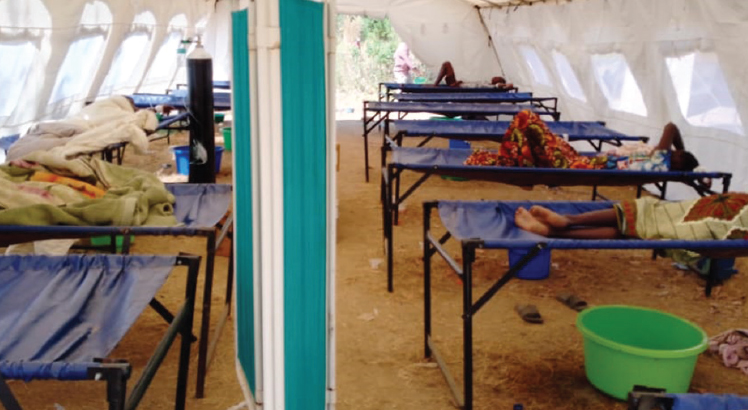Govt faulted on cholera
Public health experts have attributed perennial cholera outbreaks in the country to poor investment in water, sanitation and hygiene facilities, especially in the 12 districts hard hit this year.
Their sentiments follow the death of eight people in Nkhata Bay District this week where laboratory tests moved Ministry of Health to declare a fresh cholera outbreak on Wednesday. Yesterday, two more deaths were confirmed in Nkhotakota, taking the national death toll to 55 since January this year.
Speaking in an interview yesterday, public health emergency specialist Adamson Muula said it was disappointing that the country is recording an increase in cholera cases despite the vaccination exercise.
He said many people are forced to continue using unsafe water due to lack of access to safe water and poor hygiene, a situation that creates a fertile ground for the diarrhoeal infection spread by ingesting contaminated food or water.
Muula, a professor at the Kamuzu University of Health Sciences, said: “Therefore, the Ministry of Health needs to be fully involved and invest in the promotion of safe water and proper disposal of human waste.

“Cholera vaccination is helpful, but is not 100 percent. In this case, we do not know whether those infected were vaccinated or not. What I am suspecting is that many did not receive the vaccine.”
Ministry of Health Principal Secretary Charles Mwansambo said the first diarrhoea cases in Nkhata Bay were recorded at Mgaga Village around Tukombo on August 7.
However, he blamed late presentation to care of cases as one of the challenges that hindered response. He said most cases were taken to the treatment unit in a severe state.
Mwansambo said: “Investigation by the District Rapid Response Team revealed that poor sanitation, with about five percent of the households having toilets and poor water supply are the main drivers of the outbreak.”
The confirmation of the outbreak came 10 days after the disease had killed eight people and affected 260 others.
Reports indicate the outbreak has spread to Nkhotakota District which has registered two cases and Karonga District where there is a suspected case.
Health rights activist George Jobe in a separate interview said it was puzzling that health officials in Nkhata Bay failed to detect the cholera outbreak in its early stages.
He said: “Cholera is not strange in Malawi. We have about 10 districts that have been affected by cholera. So, why did it take so long to confirm it?”
Jobe, who is executive director of Malawi Health Equity Network, said as health rights activists, they expect government to strengthen response in containing the outbreak.
He said: “If the Ministry of Water [and Sanitation] knows that some communities are without potable water, they should liaise with the Ministry of Health to provide chlorine to such communities. And the Ministry of Water needs to come in as well to drill boreholes.”
Another health rights activist Maziko Matemba also expressed worry over the failure to contain the outbreak which is spreading during the dry season.
He said: “Indeed it is saddening that the cholera situation is continuing and the latest being Nkhata Bay which has just been established with many people getting sick.
“This is a wake-up call on our investment in prevention services within the health sector. At the community level there need to be more resources than ever-looking at the challenge at the moment.”
Ministry of Health statistics show that cumulatively, Malawi has recorded 1 358 cases with 55 deaths in 12 affected districts.
Machinga recorded the first cholera case in February this year, before the outbreak spread to Balaka, Nsanje, Blantyre and Chikwawa.
Cholera is an acute diarrhoeal infection caused by ingestion of food or water contaminated with the bacterium vibrio cholerae.n





